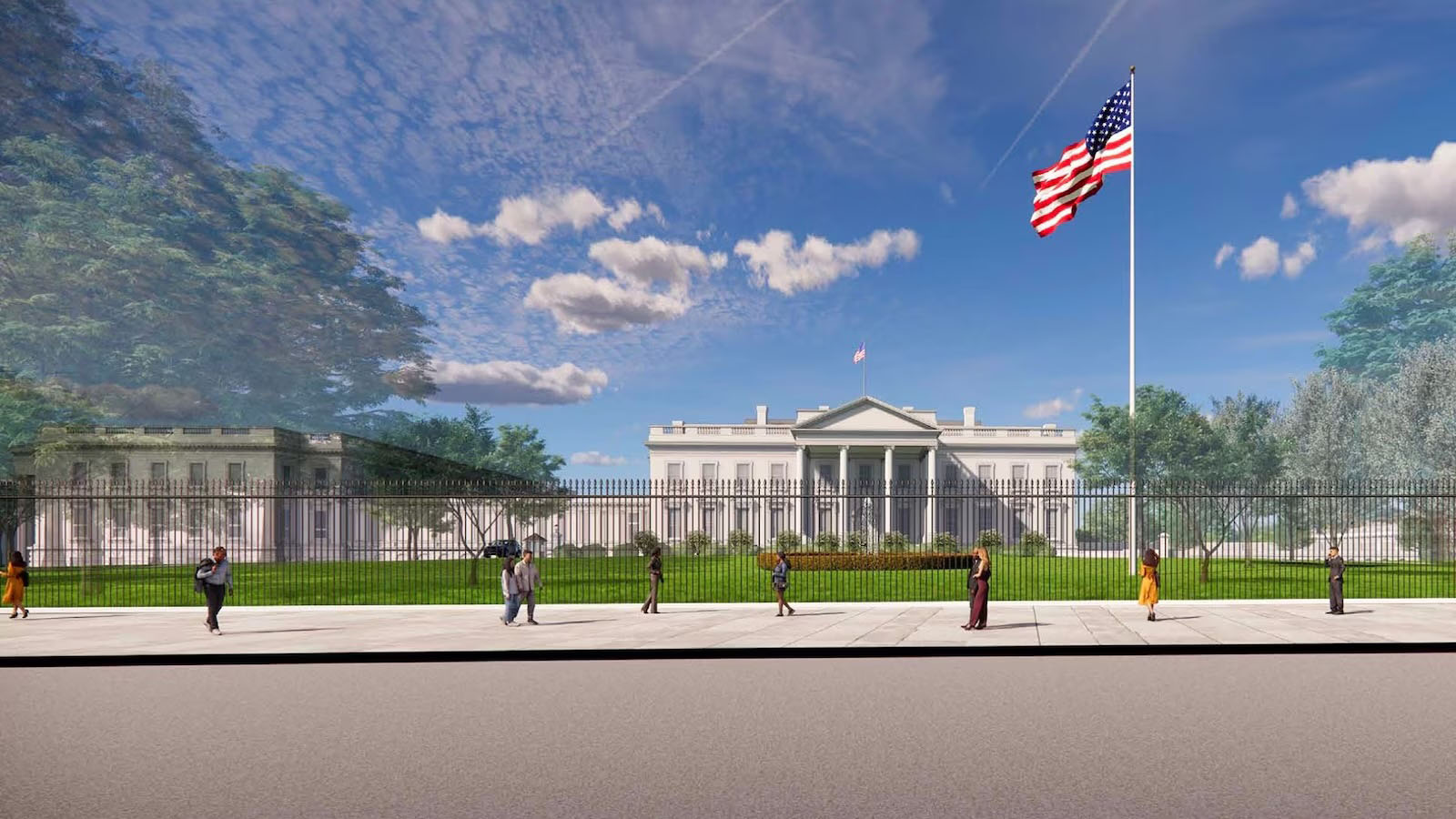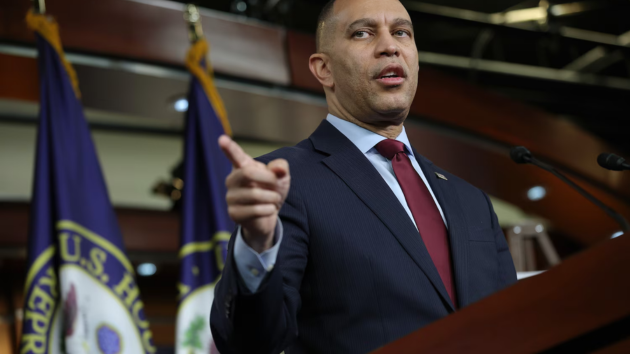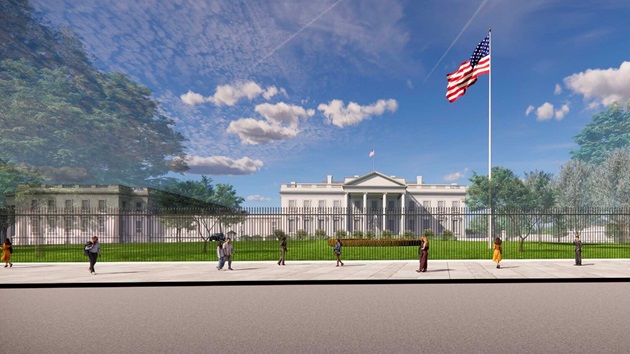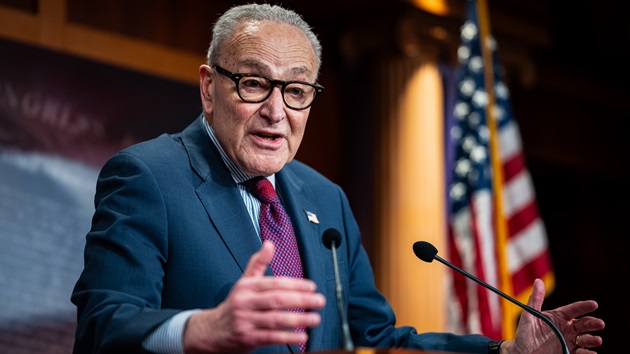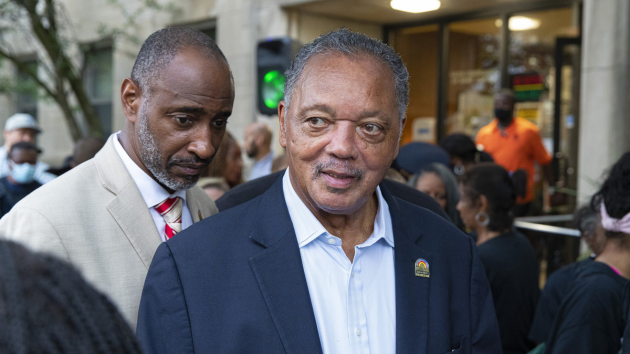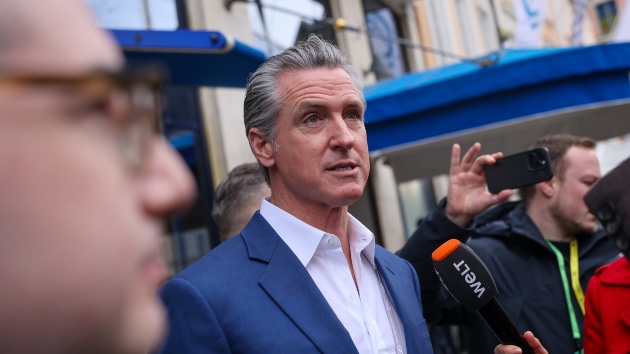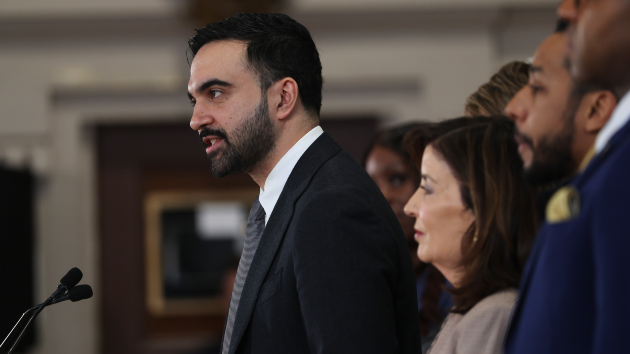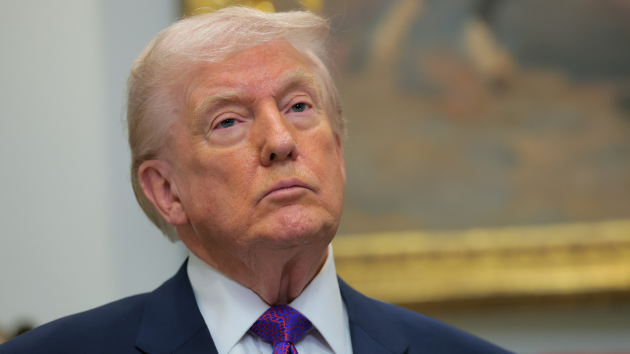
(WASHINGTON) — As the U.S. considers waging a military offensive against Iran, President Donald Trump gathered with dozens of world leaders and heads of state for the inaugural meeting of his Board of Peace, a peacekeeping body focused on rebuilding efforts in Gaza that will oversee an international stabilization force.
But Iran was still top of mind for the president, as he gave a 10-day timeline on Thursday to decide whether to continue diplomatic talks with Iranian officials or to order a military strike.
“We may have to take it a step further, or we may not. Maybe we’re going to make a deal,” Trump told the Board of Peace members. “You’re going to be finding out over the next probably 10 days, but this meeting today is proof with determined leadership, nothing is impossible.”
Asked by ABC News’ Karen Travis what the goal of a military strike would be, Trump refused to answer, “but we’re either going to get a deal or it’s going to be unfortunate for them,” he said.
Asked whether he had a deadline for Iran, Trump repeated his earlier timeline of 10 days.
“I would think that will be enough time — 10, 15 days, pretty much, maximum,” Trump said.
The president has been weighing his options on launching an additional round of military action against Iran for weeks since the regime’s brutal crackdown on protesters in January in which thousands of Iranians were estimated to have been killed.
A second American aircraft carrier — the USS Gerald R. Ford — is heading toward the Middle East, accompanied by destroyers and aircraft being redeployed from missions in the Caribbean region, a U.S. official told ABC News. The Ford is expected to join the USS Abraham Lincoln in the region, the latter having arrived there late last month.
Key Iranian nuclear personnel and facilities were targeted by Israeli and American forces during an intense 12-day conflict in June. But the strikes failed to resolve long-standing U.S. and Israeli grievances related to Tehran’s nuclear program, its ballistic missile arsenal and its support for regional proxy groups.
Iran is expected to submit a written proposal aimed at resolving ongoing tensions with the U.S. following high-stakes indirect talks between Iranian and U.S. officials in Geneva on Tuesday, a senior U.S. official confirmed to ABC News on Wednesday.
It’s unclear when the written proposal will be submitted to the U.S.
Iran agreed to make a written proposal on how to address U.S. concerns during the Geneva talks, the senior U.S. official said. U.S. officials are currently waiting on that proposal from the Iranians, according to the official.
On Tuesday, a White House official said Iran would provide detailed proposals to address “some of the open gaps in our positions” in the next two weeks.
U.S. national security advisers met in the Situation Room on Wednesday to discuss Iran, the official confirmed.
Additionally, Secretary of State Marco Rubio is scheduled to meet with Israeli Prime Minister Benjamin Netanyahu on the weekend of Feb. 28 to discuss Iran, the U.S. official confirmed.
During his remarks Thursday, Trump said that “now is the time for Iran to join us on a path” to peace in the region. Trump later said explicitly that Iran “must make a deal” and said if it doesn’t, “bad things will happen.”
“And now is the time for Iran to join us on a path that will complete what we’re doing. And if they join us, that’ll be great. If they don’t join us, that’ll be great too. But it will be a very different path. They cannot continue to threaten the stability of the entire region, and they must make a deal. Or if that doesn’t happen, I maybe can understand. If it doesn’t happen, it doesn’t happen. But, bad things will happen if it doesn’t,” Trump said.
Trump hosted the meeting with world leaders who pledged upwards of $7 billion that would go towards the rebuilding and reconstruction in Gaza.
The countries pledging are Kazakhstan, Azerbaijan, UAE, Morocco, Bahrain, Qatar, Saudi Arabia, Uzbekistan and Kuwait, Trump said.
While that amount is significant, an operational damage and needs assessment conducted last year by the United Nations, the European Union and the World Bank, estimated rebuilding Gaza could cost upwards of $70 billion and take years.
Despite that current shortfall, the president was optimistic about the future that the Board of Peace can help build in Gaza.
“But we work together to ensure the brighter future for the people of Gaza, the Middle East and the entire world. I think that the Board of Peace, because it’s mostly leaders and unbelievably respected people, but mostly leaders of Middle Eastern countries, countries from all over the world, and they’ve been very generous with money also. And the United States, which I’ll say in a moment, is also very generous with money, because there’s nothing more important than peace, and there’s nothing less expensive than peace. You know, when you go to wars, it costs you 100 times what it costs to make peace,” Trump said.
Several European allies declined to join the board over concerns the peacekeeping body would rival the United Nations. The Vatican has also declined to join the board.
The United Nations Security Council gave the Board of Peace a mandate as part of its approval of the Trump administration’s 20-point plan for peace in Gaza.
Trump, who again criticized the U.N. during his remarks, said that the U.S. is going “to be working with the United Nations very close.”
“Someday I won’t be here. The United Nations will be, I think, is going to be much stronger,” he said. “The Board of Peace is going to almost be looking over the United Nations, and making sure it runs properly.”
Five countries have already committed troops to an international force that is supposed to deploy to Gaza, the commander of the force said Thursday.
Indonesia, Morocco, Kazakhstan, Kosovo and Albania pledged to send thousands of troops for a Gaza stabilization force, according to Maj. Gen. Jasper Jeffers, the commander of the international security force.
Egypt and Jordan have committed to train police.
“With these first steps, we help bring the security that Gaza needs for a future of prosperity and enduring peace,” Jeffers said.
Jeffers did not provide details on how many troops each country would commit or how soon the force would deploy into Gaza, but he said the ISF would ultimately total 20,000 troops working alongside 12,000 Palestinian police.
Trump also said the U.S. would contribute $10 billion to the Board of Peace, though he didn’t detail what the money would go towards.
“And I want to let you know that the United States is going to make a contribution of $10 billion to the Board of Peace. Thank you. And we’ve had great support for that number. And that number is a very small number. When you look at, that compared to the cost of war, that’s — that’s two weeks of fighting. It’s a very small number. It sounds like a lot, but it’s a very small number. So, we’re committed to $10 billion,” Trump said.
Copyright © 2026, ABC Audio. All rights reserved.

